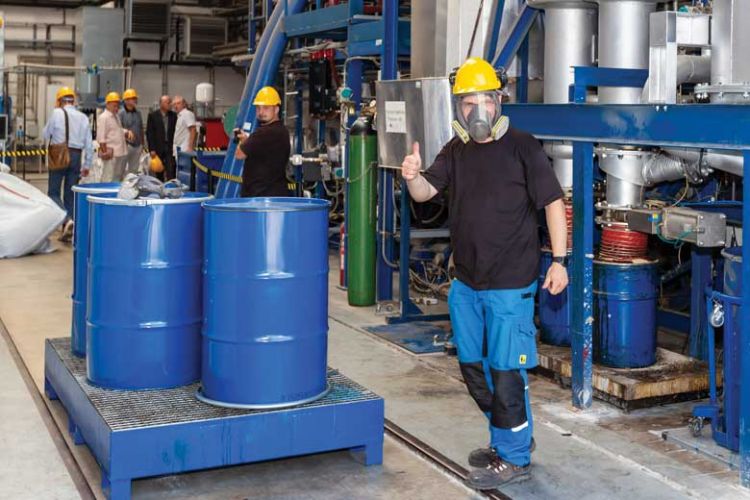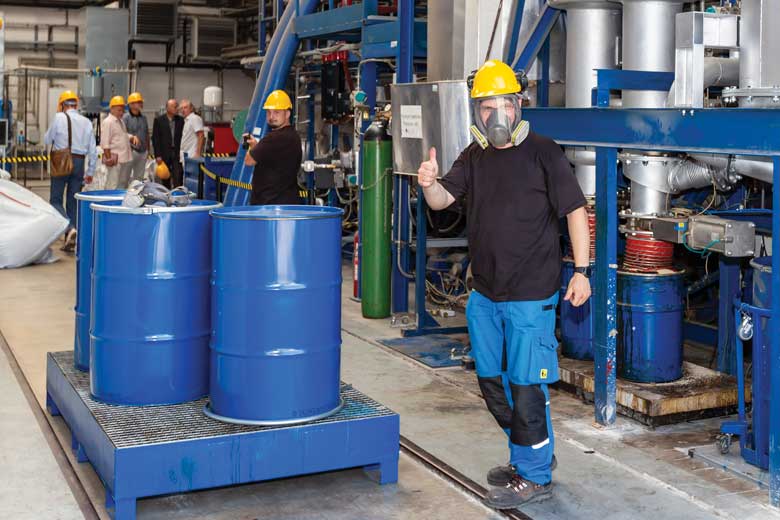A circular approach to energy efficiency

Sponsored by

Sponsored by

The ENET Centre at VSB – Technical University of Ostrava is working to consolidate and expand its projects through successful partnerships
Founded in 2010, the ENET Centre at VSB – Technical University of Ostrava is on a mission to make a positive impact on its local community, and the world more widely. The centre’s research focuses on transforming non-traditional materials – including waste – into energy and using these materials in a clean, efficient and sustainable way.
Professor Stanislav Mišák, ENET’s director, describes the centre’s mission as the “creation of new energy platforms to supply household systems, administration systems, microsystems and regional systems”.
Originally established in collaboration with the Czech Republic’s Ministry for Education, Youth and Sport, ENET works with Ostrava’s other research centres, including the Institute of Environmental Technology, and leads the Czech Technological Agency’s National Centre for Energy, an umbrella project that brings together 24 academic, research and industry partners.
ENET’s research transforms waste and other raw materials into energy through thermochemical conversion processes including plasma gasification and pyrolysis. Products of the process are developed at ENET and include chemical products, hydrogen for transportation, electric energy and heat energy.
As such, says Professor Mišák, ENET’s work feeds into European Union plans to build a circular economy (a process that aims to keep products circulating sustainably within the EU for as long as possible). This is one of the main pillars of the European Green Deal, the continent’s agenda for sustainable growth.
ENET’s work includes four main research areas: thermochemical conversion for energy and chemical products; transportation and storage of the raw material used for energy; research into complex energy diagnostic systems; and energy storage and management with the support of artificial intelligence (AI) methods.
All technologies are analysed by a “digital twin”, supported by AI, allowing for remote operation and control of the whole testbed. The digital twin supports cooperation with its research partners in the Czech Republic and internationally, and was particularly useful during the pandemic.
ENET’s flagship project, its Centre for Energy and Environmental Technologies (CEETe), prioritises partnerships with other energy research centres. The project, which is due to commence in January 2021, will bring all of ENET’s circular economy technology research together under one roof. “We would like to become an international leader for energy transformation using low-carbon technologies and with possible remote management,” says Professor Mišák.
As well as its Ostrava partners, ENET works with academic partners in the Polish city of Katowice, which, like Ostrava’s Moravia-Silesia region, has a long-standing connection to the coal and chemical industry. “The regions are very similar, with similar interests,” says Professor Mišák. Other academic partners include the plasma and pyrolysis research department at the Technical University of Berlin, and the Delft University of Technology in the Netherlands – a leader in hydrogen technology and energy storage devices.
ENET’s industry partnerships are as much of a priority as its academic ones, says Professor Mišák. “Our centre is oriented to applied research and we need industry partners to test and implement our prototypes and other technologies,” he says. Industry partners are distribution system operators, transmission line operators, and power plant operators in the Czech Republic, including nuclear power plants at Dukovany and Temelín. At governmental level, ENET’s Research Centre of Energy and Social Change (Refresh) project is designing circular economy policy in line with the European Green Deal.
Going forward, Professor Mišák expects ENET’s flagship projects – the CEETe and Refresh, both still in the formative stages – to emerge as common projects for its partners in Ostrava, the Czech Republic and internationally. In the context of the pandemic, he hopes that the CEETe will supply energy to hospitals and other critical infrastructure. The project also aims to support industry and government in sustainable energy transformation. “This is how we help to improve the quality of public life, not only in our region,” Professor Mišák says.
To find out more, visit cenet.vsb.cz/en
